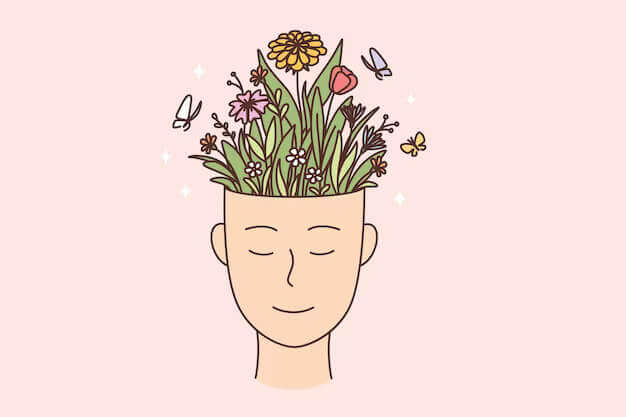Hey, do you want to know about the 5 steps to mental wellbeing then you have come to the right place. In this article, we will cover all the information about the 5 steps to mental wellbeing. Let’s begin!
Prioritizing intellectual health has become more and more essential in an ultra-modern, fast-paced environment where pressure and worry are all too frequent. Taking care of our intellectual fitness is critical for living a satisfied and balanced existence.
In this submission, we will have a look at the 5 most essential tiers to growing and sustaining mental wellbeing, giving you an intensive guide to enhancing your usual happiness and peace of mind.
Before we cross into the steps, let’s define mental wellbeing. The condition of being in outstanding intellectual fitness, in which an individual can successfully cope with the standard pressures of lifestyles, work efficaciously, and make contributions to their community, is referred to as mental wellbeing.
It involves balancing one’s emotional, mental, and social wellbeing.
Improving mental fitness is crucial since it affects all aspects of our lifestyles. It impacts our relationships, performance, and fashionable happiness.
We can enhance our resilience, happiness, and quality of existence by putting effort and time into cultivating our mental fitness.
5 Steps to Mental Wellbeing
Step 1: Make self-care a concern
Self-care is the idea of mental health. It includes taking intentional steps to improve our bodily, emotional, and intellectual health. Prioritizing self-care allows us to recharge our batteries, alleviate pressure, and cultivate self-compassion. Consider the subsequent vital characteristics of self-care:
Maintaining Physical Health: Exercise frequently, eat balanced food, and get sufficient sleep are all vital for giant wellbeing. When we prioritize our bodily health, we provide a strong basis for our brains to grow.
Practicing self-compassion and self-attractiveness: Being kind and knowing how to treat ourselves, accepting our strengths and faults, and schooling in self-forgiveness assist us in creating a pleasing self-photograph and beautifying our intellectual health.
Participating in fun and relaxing sports: Setting aside time for interests, revolutionary shops, and enjoyable sports might also help to revitalize our minds and broaden our sense of achievement.
Step 2: Develop Good Relationships
Developing and cultivating great connections is a vital aspect of mental health. Emotional resiliency and trendy happiness require human connection and assistance. Here are a few recommendations for cultivating first-rate relationships:
Establishing sturdy bonds with one’s own family and buddies: Spend time with loved ones, inspire openness, and create real ties. These interactions function as an assist device during difficult instances and contribute to our fashionable sense of belonging.
Maintaining Healthy Relationships: Aim for healthy, collectively useful connections that foster development, acceptance as true, and comprehension. Surrounding ourselves with those who uplift and encourage us may have a large effect on our high-brow fitness.
Requesting help whilst wished: It is critical to become aware while we require assistance and to be in search of help from sincere human beings collectively with friends, family, or intellectual health experts. Expressing our issues and locating help can help alleviate pressure and provide a route.
Step 3: Put Mindfulness and Stress Reduction Strategies to Work
Mindfulness and stress reduction practices are critical to preserving mental fitness. We build recognition of the present moment by practicing mindfulness, which reduces pressure and promotes emotional equilibrium. Here are some thoughts for incorporating mindfulness into your daily existence:
An Overview of Mindfulness and Its Benefits: Being gifted and listening to the present-day moment without judgment is what mindfulness includes. It allows us to objectively study our minds and feelings, reducing tension and improving readability.
Bringing cognizance into normal life: Practice mindfulness through meditation, deep respiration during sporting events, or mindful walking. These sports grow self-awareness, lessen strain, and improve intellectual readability.
Investigating Stress Reduction Techniques: Other strain-discount approaches, in addition to mindfulness, encompass yoga, writing, and indulging in hobbies.
Step 4: Keep a Good Work-Life Balance
Maintaining a balance between work and private life is vital for intellectual health. Continually putting work before private needs can cause burnout and poor mental health. Here’s how to strike a healthy paintings-lifestyles balance:
Understanding the importance of work-existence balance: Recognize that time spent on private pursuits, interests, and relationships is just as crucial as time spent on expert successes. Work-life balance leads to greater delight and decreases intellectual and emotional weariness.
Establishing limits and prioritizing personal time: Set wonderful boundaries between your professional and private lives. Avoid putting painting-associated pressure on your private lifestyles by making time for relaxation, self-care, and meaningful time with loved ones.
Seeking contentment in both expert and private pursuits: Pursue a rewarding profession while additionally fostering private pursuits and relationships. Develop a feeling of motivation and stability to improve your intellectual fitness and universal lifestyle pride.
Step 5: Seek Expert Assistance When Necessary
Understanding that professional help is required is a vital element of mental health. There is no shame in getting help; doing so may be a game changer on the road to healing and progress. Consider the following:
Identifying Mental Distress Signs: Be on the lookout for signs and symptoms associated with chronic depression, anxiety, temper adjustments, or issues functioning in regular existence. These signs may additionally indicate the need for professional assistance.
Recognizing the Advantages of Therapy and Counseling: Counseling offers a steady environment in which to take a look at feelings, collect insights, and build appropriate coping mechanisms. It can be a useful resource for the resolution of underlying problems and the promotion of mental health.
Overcoming stigma and inquiring for help when wanted: Break down the stigma around mental health with the aid of spotting that getting expert treatment is an indication of power. Contact an intellectual health professional who can provide recommendations, assistance, and appropriate treatment.
Conclusion
Finally, intellectual health is vital for a healthy and enjoyable life.
Lifestyles. You might also dramatically enhance your intellectual health by following the 5 steps stated in this text: prioritizing self-care, building tremendous relationships, practicing mindfulness, keeping a wholesome wellbeing stable, and acquiring professional help when essential.
Remember that your mental fitness is critical, and with the aid of proactive measures, you may enjoy enhanced happiness, resilience, and ordinary lifestyle satisfaction.
Frequently Asked Questions
A: The situation of being in notable mental health, where a man or woman can efficaciously cope with the same old pressures of existence, work successfully, and contribute to their community, is called intellectual wellbeing. It entails balancing one’s emotional, psychological, and social wellbeing.
A: Self-care entails taking conscious steps to improve one’s bodily, emotional, and intellectual wellbeing. Individuals may enhance their intellectual fitness by emphasizing self-care. This lets them top off their electricity, alleviate pressure, and cultivate self-compassion.
A: Being present and listening to the present-day moment without judgment is what mindfulness includes. Mindfulness exercise can lessen anxiety, grow self-attention, and foster emotional equilibrium, all of which improve mental fitness.
A: Meditation, deep respiratory physical activities, yoga, writing, engaging in interests, and collaborating in sports that provide joy and rest are all examples of stress reduction approaches. These procedures help to lessen strain and increase intellectual fitness.
A: People who feel continual despair, anxiety, mood changes, or problems functioning in their day-to-day existence may also remember obtaining professional treatment. Mental fitness professionals can offer advice, help, and suitable therapy to enhance intellectual health.




